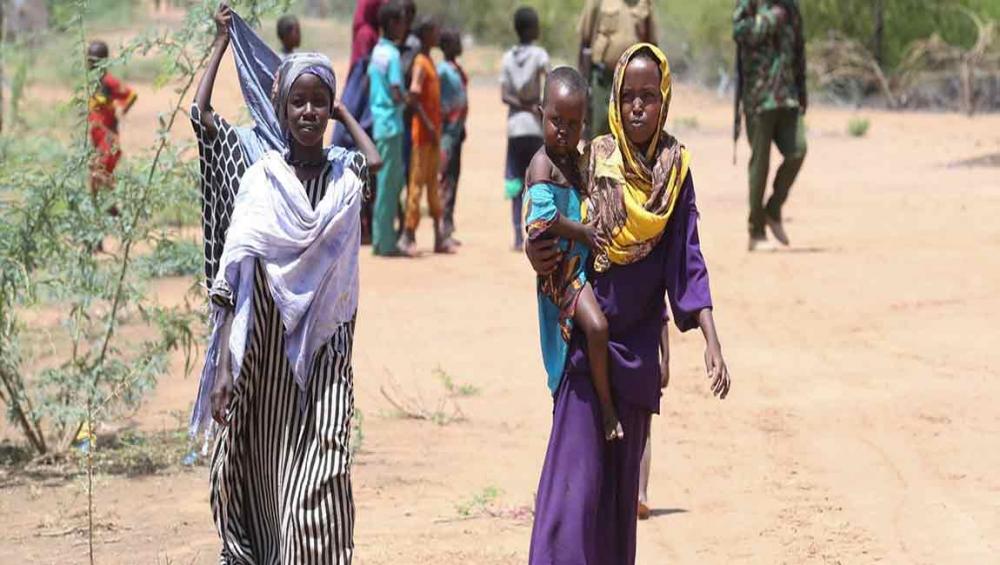Just Earth News | @JustEarthNews | 14 Apr 2018

new York: Meeting residents of the world’s largest camp for Somali refugees – sprawling Dadaab, located in north-eastern Kenya – the top United Nations official for Somalia expressed his solidarity with their situation and highlighted the gradual progress made in their home country.
“In my opinion – as the mother of a family that is about to return just told me – things are gradually getting better in Somalia,” the Secretary-General’s Special Representative for Somalia, Michael Keating, said Thursday at the end of his visit to the refugee complex.
“There is now a stronger State, a federal structure, there are big efforts to try and improve security – yes, Al-Shabaab remains a potent threat – but economic activity is picking up and things are, in a non-linear way, getting better,” he added.
He stressed that returns are voluntary, but sometimes the news emphasizes the negative, including stories about violence and drought.
Dadaab currently has a population of 226,472 registered refugees and asylum seekers. Somalis account for some 96 per cent of the residents of the four camps that make up the complex.
The first camp was established in 1991, when refugees fleeing the civil war in Somalia started to cross the border into neighbouring Kenya. A second influx occurred in 2011, when some 130,000 refugees arrived, fleeing drought and famine in southern Somalia.
While more than 80 per cent of the people who have returned to Somalia are from that second group, Mr. Keating said that some have been at the camp for 27 years, some of them second- and even third-generation refugees.
“Their links with extended family and communities are much weaker, and so it’s a much harder decision for them to leave the relative security of a refugee camp,” he said.
Keating, who also heads up the UN Assistance Mission in Somalia (UNSOM), emphasized that his visit was a two-way exchange, and that what he heard was useful for his work and engagement with authorities in Somalia.
While many believed that things are slowly improving back home, “they’re still worried about security, job opportunities and education,” he said of the feelings of some of the people he had met.
“Like parents everywhere, those I met want the best possible education for their children – and they just don’t think that’s available inside Somalia. Some of the students I met said the same,” Keating said.
“It’s not my job to lecture refugees – I’m here more to listen to them and then take their messages back and factor them in, in terms of how we think about moving forward in Somalia,” he stressed.